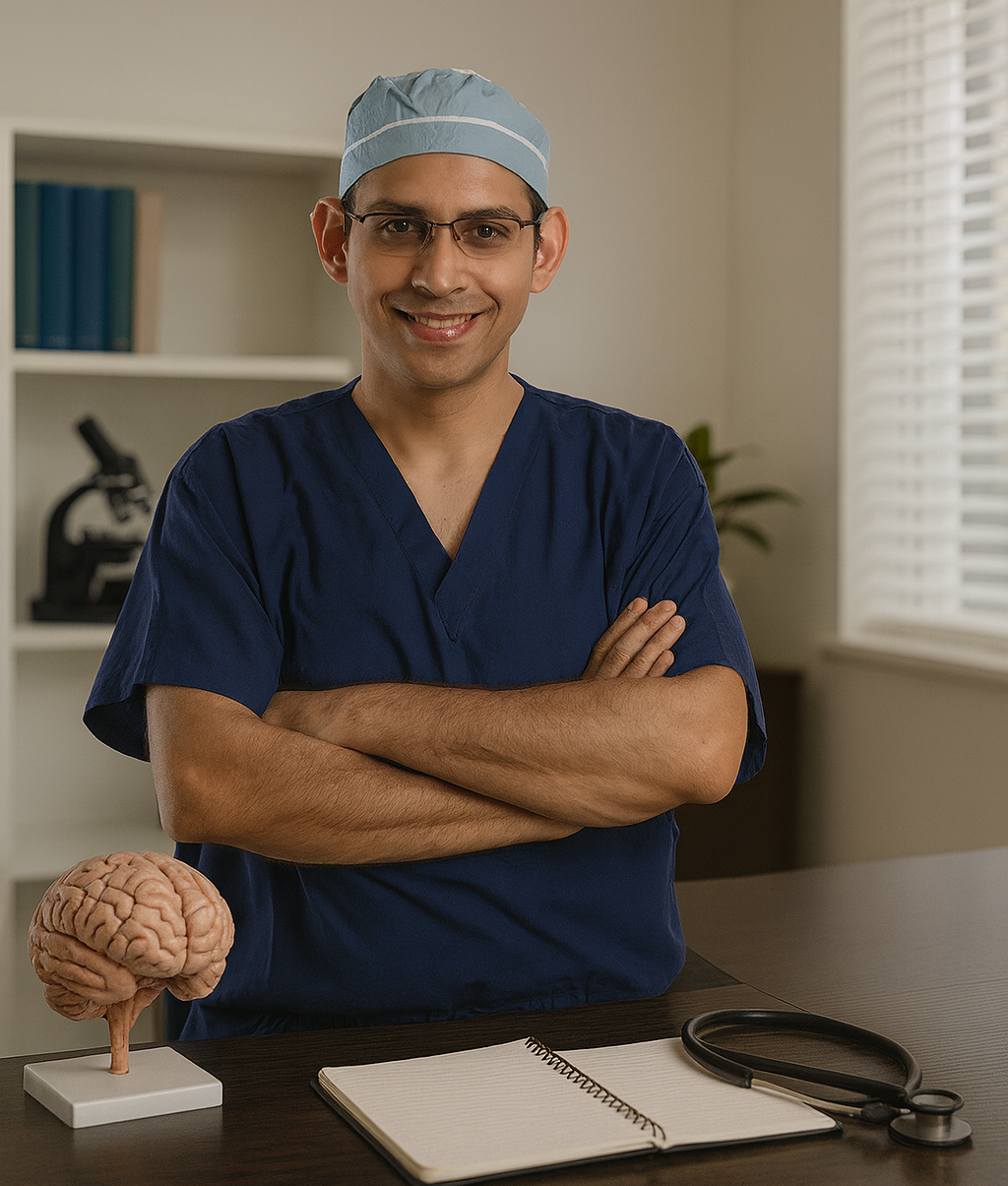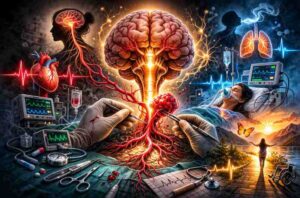Introduction
Hearing the term brain specialist doctor often brings a mix of fear and confusion. Patients and families usually wonder: Who exactly is a brain specialist? Is it the same as a neurologist or a neurosurgeon? When should I visit one? These questions are natural because the brain is one of the most complex and sensitive organs in the human body.
Thankfully, advances in modern medicine and the presence of highly skilled doctors have made diagnosis and treatment of brain-related problems much safer than ever before. In this guide, we’ll explain everything you need to know about a brain specialist doctor—who they are, when to consult them, what conditions they treat, and how to choose the right one.
Who is a Brain Specialist Doctor?
A brain specialist doctor is a general term used for medical professionals who diagnose and treat problems related to the brain, spinal cord, and nervous system. Depending on the type of treatment required, a brain specialist could be:
- Neurologist – A doctor who diagnoses and treats brain, spinal cord, and nerve conditions with medicines and non-surgical methods.
- Neurosurgeon – A doctor who specializes in performing brain and spine surgeries when medical treatment alone is not enough.

- If your condition can be managed with medicines, you will likely visit a neurologist.
If your condition requires surgery, you will be referred to a neurosurgeon.
Conditions Treated by a Brain Specialist Doctor
Brain specialists manage a wide range of conditions. Some of the most common include:
1. Headaches and Migraines
- Persistent or severe headaches should not be ignored.
- Neurologists can identify if it’s due to migraines, cluster headaches, or underlying issues like high blood pressure or brain tumors.
2. Epilepsy and Seizures
- Brain specialists diagnose seizure disorders and manage them with anti-epileptic medications.
- In resistant cases, neurosurgeons may consider surgical options.
3. Stroke
- Sudden weakness, difficulty in speaking, or facial drooping may signal a stroke.
- Quick intervention by a neurologist can save brain cells and improve recovery.
4. Brain Tumors
- Both neurologists and neurosurgeons are involved.
- Neurosurgeons perform surgery to remove tumors, followed by medical care.
5. Movement Disorders (Parkinson’s Disease, Tremors)
- Neurologists manage these conditions with medicines, therapies, and in some cases, procedures like deep brain stimulation.
6. Memory Disorders (Alzheimer’s, Dementia)
- Early consultation helps with diagnosis, slowing disease progression, and managing symptoms.
7. Spine and Nerve Issues
- Conditions like slipped discs, spinal cord injuries, or nerve compression may need specialist attention.
Brain Specialist Doctor vs Neurologist vs Neurosurgeon
Patients often confuse these terms. Here’s a simple comparison:
Aspect | Neurologist | Neurosurgeon |
Focus | Medical treatment of brain, spinal cord, and nerves | Surgical treatment of brain and spine conditions |
Education | MBBS + MD (Medicine) + DM (Neurology) | MBBS + MS (Surgery) + MCh (Neurosurgery) |
Treatment | Medications, therapies, non-surgical care | Surgeries (tumors, aneurysms, spine surgery) |
Examples of Conditions | Migraines, stroke, epilepsy, memory loss | Brain tumor removal, spine surgery, trauma |
When Should You Visit a Brain Specialist Doctor?
Many patients delay visiting a specialist because they feel their symptoms are “normal” or temporary. Here are warning signs that you should never ignore:
- Severe or persistent headaches
- Frequent fainting or blackouts
- Seizures or sudden jerking movements
- Weakness or numbness in arms/legs
- Difficulty in speaking or understanding
- Sudden loss of vision or double vision
- Memory loss or confusion
- Loss of balance or coordination
- Spine pain that radiates to the arms or legs

What to Expect in Your First Appointment
Visiting a brain specialist doctor for the first time can feel overwhelming. Here’s what usually happens:
- Detailed History – The doctor will ask about symptoms, lifestyle, and family history.
- Neurological Examination – Checking reflexes, strength, coordination, memory, and senses.
- Diagnostic Tests – MRI, CT scans, EEG (for epilepsy), or blood tests may be recommended.
- Treatment Plan – Medicines, lifestyle changes, therapy, or surgery (if required).
- Follow-ups – Regular monitoring is important for long-term brain health.
Advanced Treatments by Brain Specialists Today
Modern medicine has transformed how brain and spine conditions are treated. Some advanced techniques include:
- Minimally Invasive Brain Surgery – Smaller cuts, faster recovery.
- Endoscopic Surgery – Using small cameras to treat tumors or pituitary issues.
- Robotic Surgery – High precision surgeries with minimal risk.
- Deep Brain Stimulation (DBS) – Used in Parkinson’s disease to control movement.
- Stroke Clot Retrieval (Thrombectomy) – Immediate treatment to restore blood flow.
These advanced treatments ensure patients recover faster with fewer complications.
How to Choose the Right Brain Specialist Doctor
Choosing the right doctor is a big decision. Consider these factors:
- Qualifications & Training – Ensure they have recognized degrees (DM Neurology or MCh Neurosurgery).
- Experience – Especially in handling complex cases like brain tumors or spine surgeries.
- Hospital Facilities – Availability of MRI, CT, ICU, and emergency support.
- Success Rates – Look for doctors with proven track records.
- Patient Reviews & Testimonials – Real experiences help build trust.
Best Brain Specialist Doctor in India – Dr. Mazda K. Turel
When searching for the best care, experience and trust matter the most.
Dr. Mazda K. Turel, one of India’s leading neurosurgeons based in Mumbai, has years of expertise in treating complex brain and spine conditions. Known for his patient-first approach, precision in surgeries, and compassionate care, Dr. Turel has earned trust across India and abroad.
- Specializes in brain and spine surgeries
- Practices at top hospitals in Mumbai
- Strong patient success stories and international recognition
For patients seeking a reliable brain specialist doctor in Mumbai or across India, Dr. Mazda K. Turel is a name associated with trust and excellence.
FAQs About Brain Specialist Doctors
Q1: Is a neurologist the same as a brain specialist doctor?
A neurologist is a type of brain specialist who treats brain and nerve conditions without surgery.
Q2: Do brain specialists treat memory loss?
Conditions like dementia, Alzheimer’s, and age-related memory problems are managed by neurologists
Q3: When should I see a neurosurgeon instead of a neurologist?
If your condition requires surgery (like brain tumors, aneurysms, or spinal cord compression), you will need a neurosurgeon.
Q4: Can children visit a brain specialist doctor?
Yes. Pediatric neurologists and neurosurgeons treat brain and nerve disorders in children.
Q5: Who is the best brain specialist doctor in India?
India has many skilled specialists, but Dr. Mazda K. Turel in Mumbai is widely regarded for his expertise in brain and spine surgeries.
Conclusion
The brain is the control center of the body, and taking care of it should never be delayed. Whether it’s persistent headaches, seizures, memory loss, or spine issues, consulting a brain specialist doctor at the right time can make all the difference.
With advanced technology and skilled doctors like Dr. Mazda K. Turel, patients today have access to world-class brain care in India. Remember, early diagnosis and timely treatment not only improve recovery but also give patients and families peace of mind.




